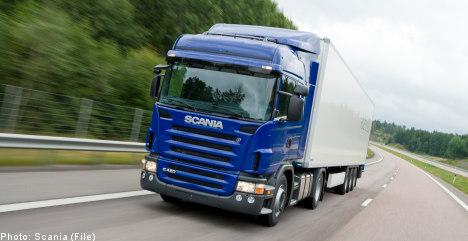In late 2010 and early 2011, Östling’s name was repeatedly mentioned by prosecutor Nils-Eric Schultz, who has been investigating Scania for suspicions that the company paid millions of kronor in bribes to the former Iraqi regime of Saddam Hussein.
The alleged payments constitute a violation of UN sanctions and are said to have occurred in the early 2000s within the framework of the United Nation’s oil-for-food programme.
Speaking with Sveriges Television (SVT) in November, Schultz said that Östling is among the Scania bosses possibly facing indictment in the case as he held “the highest responsibility for these deals.”
The statements occurred before Östling had been interviewed in the probe and before he had been formally notified of the suspicions against him.
Östling has continually denied any wrongdoing, and earlier in June Schultz concluded that the Scania CEO would not end up being charged in connection with the case, although three lower-level managers would be indicted.
According to Östling’s complaint against Schultz, which was filed with Sweden’s Chancellor of Justice (Justitiekanslern), the news that he was suspected in the investigation received a great deal of attention in the media abroad and as a result damaged his reputation.
“The negative exposure and publicity which Schultz’s actions in the media has been going on continually and without any real possibility for Leif Östling to refute or otherwise defend himself against the allegations,” reads the complaint filed by Östling.
He claims that Schultz’s actions amounted to a violation of rules prohibiting the disclosure of confidential information related to a criminal probe.
In addition, the complaint alleges that Scania’s reputation was also damaged because Schultz gave detailed information about the bribery probe to the US Department of Justice.
“Schultz’s handling of the ongoing criminal investigation must been seen as reprehensible for several reasons,” Östling argued.
“Against the background of what has been described in this complaint, Scania and Leif Östling move to have the Chancellor investigate Nils-Erik Schultz actions described above and consider appropriate measures based on what has happened.”



 Please whitelist us to continue reading.
Please whitelist us to continue reading.
Member comments